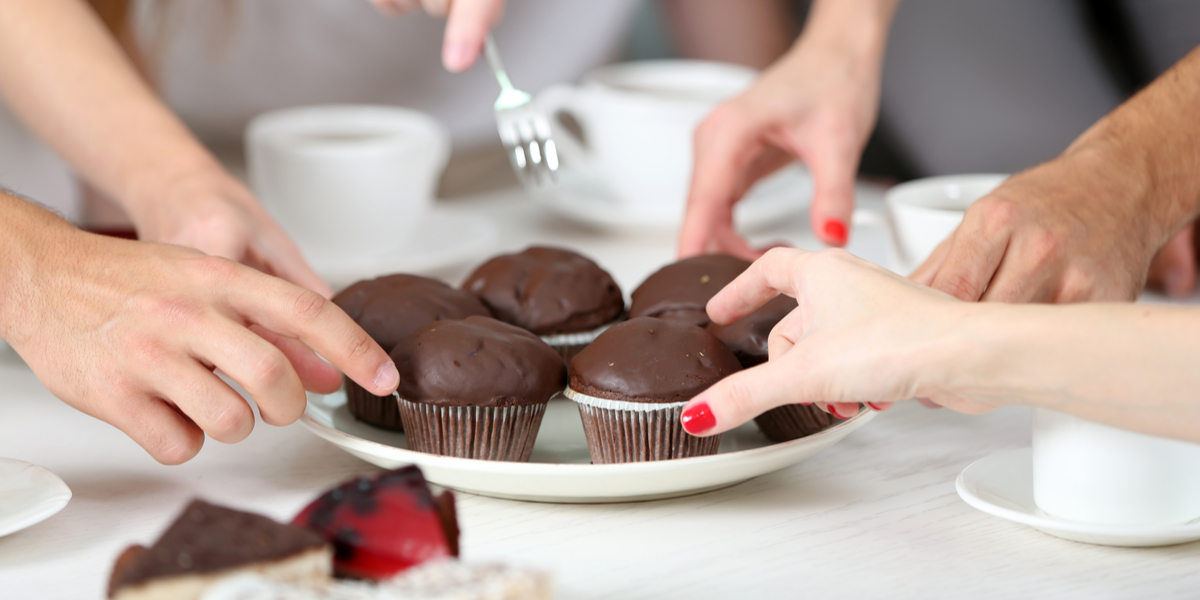Overindulgence is an unattractive weakness that can lead to lots of other demons (and pile on the pounds as well!). Here are a few tips to help you conquer this “naughty but nice” pleasure that isn’t really all that nice.
1Take a look at your motivation
Take a moment to ask yourself, “Why do I eat? What is the benefit I’m after?” “One should eat to satisfy the needs of health, not ones desires,” recommended St. John Cassian. “What is pleasurable is not always good,” this wise man went on to note. Pleasure is not a sign that what we eat or drink is good for us, especially when bad eating habits may have blunted the senses.
2Rediscover food as a gift of God

“Whatever you eat or drink, or whatever you do, do everything for the glory of God” (1 Cor 10:31). Give thanks to God before and after each meal.
3Re-educate your body
Modern man must relearn how to listen to his whole body, not first and foremost his desire. We know when we’ve moved beyond satisfying a bodily need to pure indulgence. Our body has an inbuilt wisdom; it knows when to tell us “stop.” Don’t we taste an added zest when we leave the table without a feeling of bloatedness?
4Conversation
We prolong pleasure through memory: but don’t let the memory of some good meal monopolize the conversation. Our memories can be just as disproportionate as our appetites. Conversely, there is also a way of disproportionately complaining about food. Temperance begins by accepting what’s put on one’s plate with good grace.
5Self-Denial

Have no illusions: it’s impossible to master oneself without a minimum of self-denial. We will only know who our master is—our willpower or our pleasure—the day we learn how to say “no” to certain pleasures. If fasting is so difficult during Lent, it’s only because we’re no longer accustomed to going without during the rest of the year.
Here are a few simple suggestions to practice regularly: eat a meal you like less or dislike; forgo second helpings of dishes you find delicious; refrain from a food you particularly enjoy.
6Table comportment

A priest once said, “If you want to know the intimate relationship a man has with God, watch him at table. If he’s attentive to everyone, you can be sure he is present to God. But if all he thinks about is filling his belly, helps himself before others, tells his own stories without listening to those of his dinner companions, seeks out the company of the great rather than being seated to just anybody, you may well doubt the depth of his communion with the Lord.” Beware not to become like this dinner guest.
7Take action
Simply review the different types of gluttony and take a counter-approach. For example, if you start eating earlier than you should, try to set a precise mealtime; stop snacking when you get home in the evening, or prepare a proper meal.
8Treat the cause
The pleasure of food is a form of compensation and, as Aristotle said, “one cannot live without pleasure.” While comfort eating is the most immediate of pleasures, you can help yourself to eat less by substituting other pleasures and varying your sources of comfort.
9Meditate on the example of Christ

St. Ignatius invites us to contemplate the way in which Jesus took nourishment. Let’s take our example from him and not forget that eating means being together; being together is sharing; sharing is loving; and loving is Jesus.
Father Pascal Ide and Luc Adrian

Read more:
Meet the priest who’s helping others recover from overeating

Read more:
The 7-word guide that makes eating less complicated








